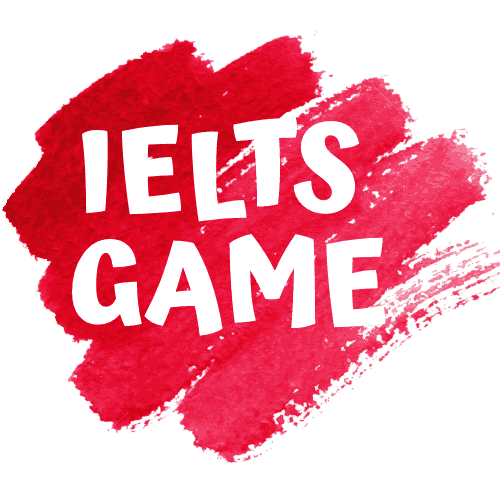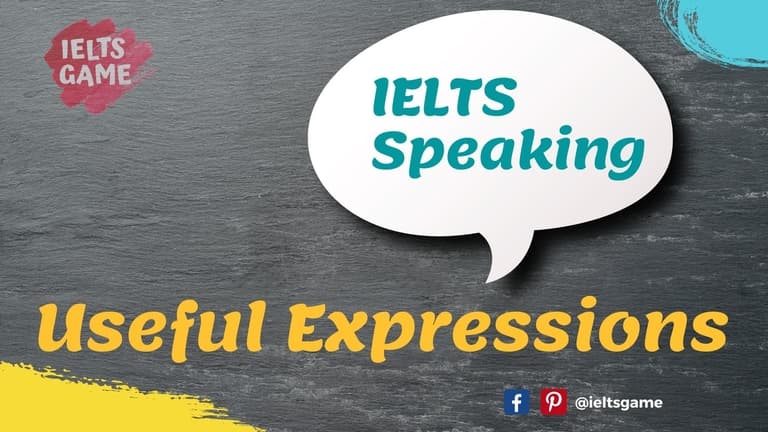IELTS Speaking: Structures & Expressions That The Examiner Will Be Happy To Hear
While practicing for the Speaking section of the IELTS exam, you should be aware of what the examiner expects to hear from you.
In this article, IELTS Game will talk about what kind of language is expected of a test candidate for a high-scoring answer.
In addition, we will provide you with useful English expressions to use not only in IELTS Speaking, but also in your daily conversations.
Introduction
Part 1 and Part 2 of the speaking test ask about personal experiences while Part 3 deals with more serious questions about society, environment, technology, etc.
This means that the language used to answer questions should be chosen accordingly.
- In Part 1 and Part 2, less formal and more colloquial language would be more appropriate;
- Part 3, however, requires more complex structures and less common vocabulary.
Importance of Vocabulary and Grammar in IELTS Speaking
Although there isn’t one particular set of vocabulary and grammar structures you can learn to score high, you should know that your vocabulary should be varied, idiomatic and used appropriately.
Spend some time to learn the paraphrasing technique; it’ll prove useful when you need to restate an idea or opinion.
Much as the vocabulary, your grammar needs variety as well.
Knowing and being able to use a wide range of grammatical patterns, tenses and forms will prove very helpful in your speaking test.
You’ll be graded both on your grammar and vocabulary use, each of which is worth 25% of the total score for speaking.
While you shouldn’t memorize ready answers (because you’ll be penalized for it!), you can learn words and phrases that frequently come in handy when answering IELTS Speaking questions.
These will help you build a better organized and logical speech as well as facilitate examiner’s understanding of your ideas.
Using expressions below, which help connect ideas, fall into the Fluency and Coherence criterion (another 25% of your score). Here is the list with some examples.
Useful Expressions to use in IELTS Speaking test
Here are many useful structures to express yourself in 12 different topics that will boost your IELTS Speaking score.
1. Giving an opinion
- I think (that);
- I believe (that);
- I consider (that);
- I’m convinced (that).
Saying that adds formality.
2. Agreeing with an opinion
- Yes, I agree;
- Yes, I think so;
- I couldn’t agree more.
3. Disagreeing with an opinion
- No, I disagree;
- I wouldn’t say that is necessarily true;
- I tend to disagree.
4. Giving examples
- Like (e.g., I do different kinds of exercise like jogging and bicycling);
- Such as (e.g., There are several ways to deal with obesity such as healthy diet and physical exercise);
- For example;
- For instance.
5. Expressing contrasts and concessions
- But;
- Although;
- Even though;
- On the other hand (e.g., Parents closely controlling their children’s life can save them from a lot of trouble. On the other hand, this can prevent children from growing into independent thinkers.)
6. Talking about causes
- I guess/think this is because;
- This happens because;
- It is (was) caused by;
- There are several reasons for (e.g., There are several reasons for a growing number of obese people);
- One reason could be (e.g., One reason could be the quality of food they are consuming).
7. Talking about effects
- It could lead to;
- This may cause;
- What can occur as a result is (e.g., What can occur as a result is that these people won’t be able to enjoy full lives);
- What this could result in is (e.g., What this could result in is these people’s inability to enjoy full lives).
8. Talking about solutions
- The best solution to this problem would be;
- This (The problem) can be solved by;
- The best way to deal with this problem is;
- The situation could be remedied by (e.g., The situation could be remedied by introducing mandatory physical training in schools and workplaces.)
9. Talking about hypothetical situations
- If + past simple, would + infinitive (e.g., If people did sports regularly, they wouldn’t be overweight);
- If + past perfect, would + perfect infinitive (e.g., If I had studied harder at school, I would have received a better college education);
- I wish someone would do/did something (e.g., I wish teachers would pay more attention to their students worrying behaviour);
- If only someone would do/did something (e.g., If only teachers would pay more attention to their students worrying behaviour).
10. Time phrases
- Now;
- Right now;
- At the moment;
- At present;
- Today;
- These days;
- Nowadays;
- Recently;
- Lately;
- In the past;
- At the (that) time;
- Before;
- When I was younger /a child/ 15 years old, etc.;
- Years ago;
- Many years ago.
11. Adding information
- And;
- Also;
- I’d also like to say;
- Besides (e.g., I don’t like to play football because it’s a traumatic kind of sport. Besides, I’m not good at team sports in general.)
12. Saying something in another way
- What I’m trying to say is;
- In other words;
- To put it another way;
- What I mean is.
Example for using Speaking Expressions
Let’s now look at a sample question from real IELTS speaking exam and response paying attention to the signposting words and phrases.
How have clothes fashions change in your country over the last few decades?
I guess the most dramatic change is that nowadays people have very eclectic tastes in fashion.
You can see all kinds of clothes being produced and sold.
But in the past clothes selections were more narrow.
For example, there was a time when it was fashionable to wear flared trousers only.
These days, however, people wear different kinds: flared, skinny, high-waist, low-waist, etc.
Try to avoid words and phrases which are too formal such as moreover, in addition, etc.
They look good in writing but sound quite awkward and unnatural in spoken language.
I hope this was useful and good luck with your speaking practice!


One Comment on “IELTS Speaking Expressions The Examiner Will Be Happy To Hear”
I found it a very impressive document.